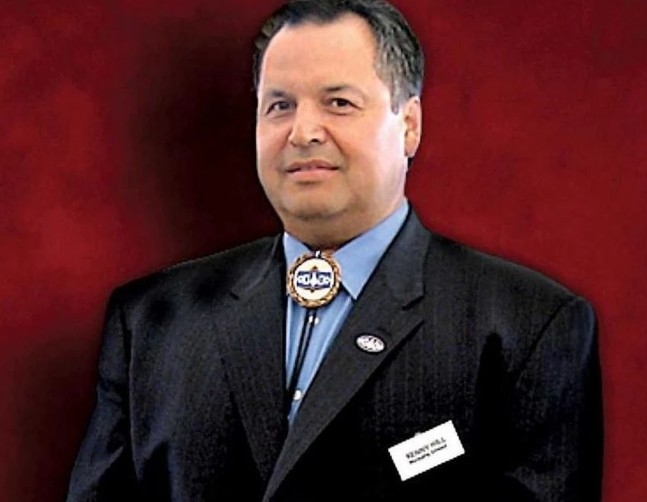
About 18 months after Six Nations tobacco billionaire Ken Hill suddenly died while on vacation in Florida, a call came to the Toronto Sun from two of his past lovers.
There was something very fishy about his one-page, photocopied will.
“There’s speculation the signature doesn’t necessarily match his signature, there are names that are misspelled, it’s very poorly drafted for a person who was a multi-billionaire,” one of the women told me. “Imagine a 10-year-old put together a 250-word document,” added the second woman. “It’s so far off from the truth, it’s hard to swallow.”
They were contesting the will on behalf of Hill’s nine children by eight different mothers.
“We all think there’s a very suspicious situation going on here.”
More than three years and much litigation later, an Ontario judge has agreed there were “suspicious circumstances” surrounding the will that left the bulk of his estate to just one son — Ryan Burnham.
“The Purported Will is not accepted as being Mr. Hill’s will pursuant to section 45(2) of the Act on the grounds that the Respondent has failed to establish that Mr. Hill signed it,” concluded Superior Court Justice Mario D. Faieta.
Hill was co-founder and partner at Grand River Enterprises, a multi-million dollar tobacco manufacturer and exporter and reputedly the largest private Indigenous-owned business in the world. The cigarette magnate with champagne tastes loved the expensive life: he had a luxury car collection of Ferraris, Rolls Royces and a Lamborghini that was valued at $5.58 million, his 2010 Lazzara 76-foot yacht was worth $2.76 million and his 2013 Sea Ray Sundancer, $939,000.
He’d take a private jet to Las Vegas and party with rock legend Rod Stewart, former boxing champ Mike Tyson and rapper Snoop Dogg; he reportedly had an 8,000 sq.-ft. estate in the Bahamas and “ multi-million dollar mansions ” in Los Angeles, Atlanta and Miami. Before their break-up and bitter legal battle over child support, he once fetted Brittany Beaver with a $75,000 birthday dinner.
On Jan. 18, 2021, Hill died at the age of 62 from a blood clot associated with COVID. The only document outlining his final wishes was a photocopy of a signed, unwitnessed, typewritten document dated Sept. 10, 2020, which named Burnham, 34, as executor and left him Hill’s interest in Grand River Enterprises (“GRE”), worth about $38 million.
Six of the children — aged nine to 21 — were each given $5 million, the 16-year-old was left $3 million, the 39-year-old was to receive 50% from “the use” of Burnham’s GRE shares and property and the oldest, at 44 and only recognized as his child after Hill’s death, wasn’t mentioned at all.
Three weeks before his death, Hill had supposedly handed the document in an unsealed envelope to his good friend in the Bahamas with an ominous message: “I f anything ever happens to me, give this to my lawyer.”
NOT KNOWN TO USE COMPUTERS: RULING
Hill wasn’t known to use computers, the ruling said, and there was no draft of the purported will or any discussion about it anywhere on any of his devices.
A handwriting expert at the trial testified that because it was a photocopy, she couldn’t conclude it was Hill’s signature or that it hadn’t been copy and pasted. A defence expert agreed under cross examination that she couldn’t rule out that it had been traced by someone else.
“Given the evidence adduced, I find that the Respondent has not established that Mr. Hill applied his signature to the Purported Will. This is dispositive of the matter,” the judge wrote.
Still, Faieta went on and concluded that not only wasn’t the signature verified but it was “suspicious.”
“There is no evidence of who drafted and typed the Purported Will. There is no evidence of when and where it was created and signed. There is no evidence of how a copy of Mr. Hill’s signature ended up on the Purported Will.
“There is no evidence of whether Mr. Hill reviewed the Purported Will prior to its execution. In addition, the circumstances in which the Purported Will was allegedly given to, kept, and later found … are quite odd.”
Hill’s nine children could soon be in for a more equitable share of their dad’s bounty of cash, mansions, sports cars and riches — but more likely, there are more legal battles ahead.





